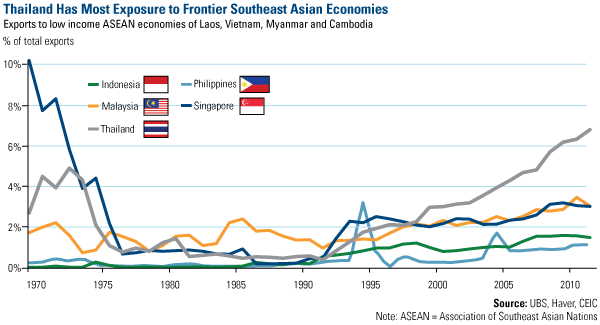Emerging Markets Radar (May 28, 2012)
Strengths
- The State Council, China’s cabinet, on Wednesday called for more economic policies to encourage growth. The new policies are expected to include support for big infrastructure projects, tax cuts for businesses, more loans for small and medium-sized enterprises, and programs to boost domestic consumptions.
- Chinese infrastructure companies rallied after the market heard the government plans to hasten approval of infrastructure construction projects to improve the economy.
- Russian equities earnings yield is at the highest level it has been since 2008 after the recent selloff.
Weaknesses
- The HSBC China flash PMI dropped to 48.7 in May from 49.3 in previous month, a consecutive seventh month below 50, indicating that industrial activities are contracting. Particularly worrisome is the new export order index that dropped to 47.8 from 50.2 in April, indicating strongly that export businesses are declining.
- The big four banks’ new loan growth was at RMB 30 billion as of May 20, versus a quota of RMB 250 to 280 billion, and their deposits fell RMB 270 billion as of May 20 versus the end of April. Mid- and long-term corporate loans remained weak, and retail loans also showed signs of sluggish growth, further signals that may force the central bank to cut interest rate and reduce the bank reserve ratio.
- The faster-than-anticipated sell off of the Brazilian real has exposed several economic vulnerabilities and has triggered government and a corporate debt sell off.
Opportunities
- The Russian central bank is ready to enlarge its balance sheet to protect the banking system if needed in a “Russian equivalent of QE.”
- Thailand is most involved in exporting to the low income Association of Southeast Asian Nations (ASEAN) economies of Laos, Vietnam, Myanmar and Cambodia. As these countries grow at an exponential rate, Thai companies stand to benefit the most in exporting manufactured goods and exploring natural resources, according UBS research.
- The end of the presidency of France's Nicolas Sarkozy, a staunch opponent of Turkey’s EU membership, has revived hopes for the country’s accession to the bloc, after little progress since the EU opened entry talks with Turkey in 2005.

Threats
- China’s premier Wen Jiabao warned at a State Council meeting this week that global growth has deteriorated and pressure has increased on domestic growth. There is a need to accelerate railway and other infrastructure projects. The State Information Office is forecasting that second-quarter GDP growth could fall to 7.5 percent.
- The threat of nationalization in Latin America is not isolated to Argentina, according to Business Monitor International. Actions by the Argentine authorities to reverse its trade deficit with Brazil have also seen retaliations from the Brazilian authorities, who introduced tighter restrictions on perishable imports. Should the trade spat escalate, more Brazilian companies are likely to suffer.
- The uncertainty surrounding the Greek political situation raises the risk that the country’s exit from the eurozone could happen as early as this year and that it could be disorderly.













